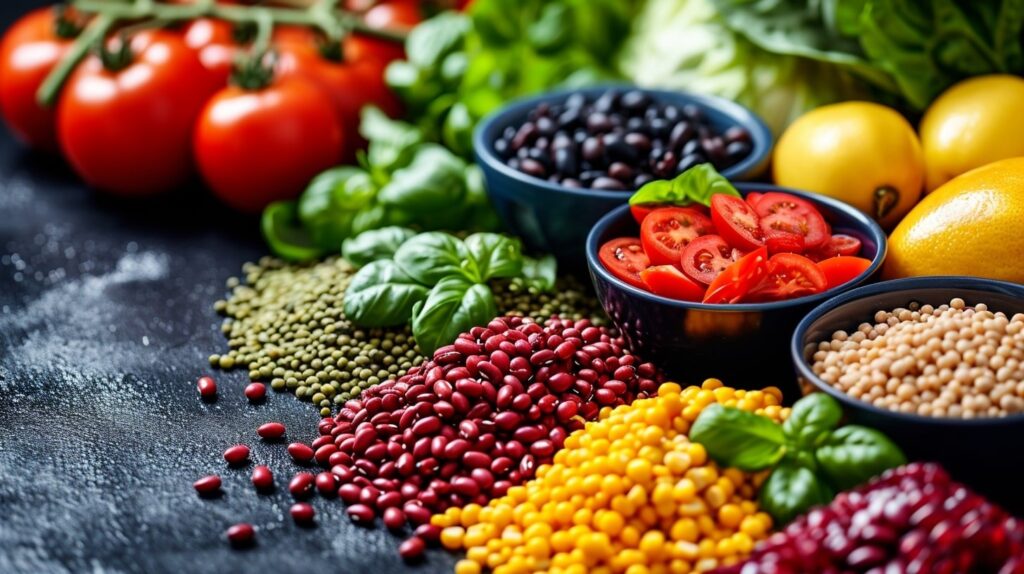Embarking on a journey toward better health can sometimes feel overwhelming, but one of the most effective paths to vibrant well-being doesn’t require fad diets or drastic changes. It’s as simple as turning to nature’s bounty. A plant-based diet, teeming with an array of fruits, vegetables, legumes, and whole grains, is not just a treasure trove of nutritional riches—it’s a heart-friendly blueprint for longevity and vitality. In this article, we’ll delve into the myriad benefits of a diet that celebrates plants at the heart of your plate, and how making this shift can significantly bolster your heart health. Plus, we’ll share insights from the ‘My Heartlet‘ app, your digital companion in the quest for a healthier heart.
Table of Contents
Reap the Rewards of Plants!
The advantages of a plant-centered diet are extensive and backed by an ever-growing body of research. Plants are inherently rich in essential nutrients like vitamins, minerals, and antioxidants, which play a significant role in maintaining our body’s equilibrium and combating oxidative stress. For instance, vitamin C found in citrus fruits is known for its immune-boosting properties, while leafy greens are a powerhouse of vitamins A, C, K, and folate.
Moreover, plants provide a wealth of dietary fiber, which is crucial for digestive health. Fiber aids in regulating blood sugar levels, maintaining a healthy weight, and can even reduce the risk of certain types of cancer. The American Heart Association underscores the importance of fiber in diet, noting its benefits for heart health.
Transitioning to a plant-based diet doesn’t mean you have to compromise on taste or variety. From the hearty, earthy flavors of legumes like beans and lentils to the nutty essence of whole grains such as quinoa and brown rice, there’s a vast spectrum of taste experiences waiting to be explored.
Boost Your Heart with Plant-Based Diet!
Diving deeper into the heart of the matter, a plant-based diet is particularly beneficial for cardiovascular health. Saturated fats, commonly found in animal products, can increase cholesterol levels and the risk of heart disease. Conversely, plants are low in saturated fats and high in heart-healthy fats like omega-3 fatty acids found in flaxseeds and walnuts. Incorporating these into your meals can help to improve your cholesterol profile and reduce inflammation.
Numerous studies, like those highlighted by the Harvard School of Public Health, have demonstrated that a higher intake of fruits and vegetables is linked to a lower risk of heart disease. Vegetables like spinach, kale, and broccoli are not only packed with vitamins but also contain compounds like nitrates, which can help to lower blood pressure.
Embracing a plant-based diet also encourages the intake of whole grains—that includes swapping out white bread for whole wheat, and white rice for brown or wild rice. These grains are beneficial for heart health, as they contain nutrients that help to regulate blood pressure and promote overall cardiovascular health.
Savor Health with Every Bite!
Choosing a plant-based diet means each meal is an opportunity to nourish your body and protect your heart. To ensure you’re getting the most out of your plant-based choices, it’s important to focus on variety. Combining different fruits, vegetables, legumes, and grains ensures that you receive a broad range of nutrients and enjoy a diversity of flavors.
Here are some tips to enrich your diet with plant-based goodness:
- Start your day with a smoothie packed with berries, spinach, and a plant-based protein like soy or pea protein.
- Make vegetables the star of your plate, aiming for at least half to be filled with a colorful variety.
- Swap out meat-based proteins for legumes a few times a week in recipes like chili, soups, or salads.
- Choose whole grains over refined grains – think brown rice, barley, and whole wheat pasta.
- Snack on nuts and seeds, which are excellent sources of healthy fats and protein.
Remember, transitioning to a plant-based diet is a journey. The ‘My Heartlet’ app can be a great resource, providing tips, recipes, and tracking features to help you make heart-healthy choices every day.
Adopting a plant-based diet isn’t just a trend—it’s a lifestyle choice that can lead to a happier, healthier heart and a more vibrant life. With every plant-based meal, you’re investing in a future of improved well-being. By incorporating more fruits, vegetables, legumes, and whole grains into your diet, you’re taking a proactive step towards reducing the risk of heart disease and reaping the vast nutritional rewards that plants have to offer. Remember, small changes can lead to big differences, and tools like the ‘My Heartlet’ app are here to support you on your health journey. So why not start today and savor health with every bite?
